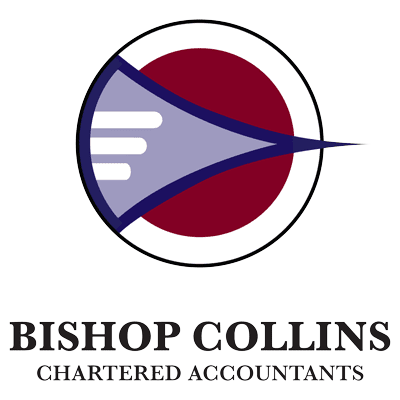What Is Tax Audit Insurance?
Tax audit insurance is an insurance policy that can be obtained for an individual, company, self managed super fund (SMSF) or company directors. Depending on the scope of the policy, this insurance assists cover the professional fees of your accountant or advisor in assisting you to respond to an audit, inquiry, investigation, review or examination of returns lodged with the Australian Taxation Office (ATO) or other government revenue authorities.
The probability of a review occurring has escalated due to government authorities increasingly using data matching, artificial intelligence, and even social media, to compare disclosures made in your lodged tax returns to those of other taxpayers or benchmarks. The use of Single Touch Payroll (STP) for example allows the ATO to identify businesses (registered for STP) that have not met their PAYG and SG payment requirements. This facilitates greater compliance cross-checking leading to more audit activity.
Should the ATO or other government revenue authorities undertake one of these audits or reviews of lodged returns or financial compliance obligations, the costs and resources dedicated to responding to their queries can potentially be quite substantial.
Accordingly, the tax audit insurance policy is designed to protect you and your business (or SMSF) from the unexpected costs incurred in responding to the review or audit by reimbursing you for the related professional fees and costs.
Why is Tax Audit Insurance Important?
Tax audits are no longer targeted at simply big businesses and the wealthy. Small to medium enterprises, SMSFs, individuals with rental properties or trust structures are subject to review and investigation by the ATO.
Noticeably, taxpayers with cryptocurrency assets and those with excessive work-related deductions are potentially earmarked for scrutiny. The ATO also utilises benchmarks to hone in on the ‘cash economy’ to identify businesses not declaring all of their income. Non-compliance in these areas attracts a greater chance of being audited.
The most common audits are those undertaken by the ATO in relation to personal or business returns, however, compliance audits are also becoming more common, particularly those in relation to payroll tax obligations.
Should you or a related entity be selected for review, the audit or investigation process can be quite time-consuming. Depending on the type of audit, the scope of the review and the number of periods being audited, the related professional fees can add up.
 Which Entities Can be Covered?
Which Entities Can be Covered?
Tax Audit Insurance Policies vary between insurers (or brokers). However, some common policies include cover for the following:
- business audit only;
- business and directors audit;
- individual cover (for insured parties that are not a corporation);
- self-managed superannuation fund cover.
The particular policy may also include additional coverage for things such as investigation cover and other such items.
You should speak with your broker or advisor to determine which policy and cover might be relevant to your circumstances.
 Which Tax-Related Laws Do Tax Audit Insurance Policies Typically Cover?
Which Tax-Related Laws Do Tax Audit Insurance Policies Typically Cover?
There are a number of laws and regulations that may be covered in a tax audit insurance policy. These include:
- Income Tax Assessment Act 1936 (Cth);
- Income Tax Assessment Act 1997 (Cth);
- Taxation Administration Act 1953 (Cth);
- Fringe Benefits Tax Assessment Act 1986 (Cth);
- A New Tax System (Goods and Services Tax) Act 1999 (Cth);
- Superannuation Guarantee (Administration) Act 1992 (Cth);
- Termination Payments Tax (Assessment and Collection Act) 1997 (Cth); or
- any legislation of an Australian State or Territory relating to payroll tax.
Additionally, your policy cover might include coverage of the professional costs associated with certain types of audits and reviews, including:
- BAS/GST Compliance
- Capital gains tax
- Borrowing rules (LRBAs)
- FBT
- Income, Land and Payroll Tax
- Record Keeping
- Self-Managed Superannuation Funds and SIS contraventions
- Superannuation Guarantee and Compliance
- Workers Compensation / WorkCover
Some policies also include retrospective protection (that is, previously lodged returns are covered) as well as specialist fee cover (that is, fees of any other external specialists such as taxation lawyers or consultants).
 A Word of Caution…
A Word of Caution…
Before taking out a tax audit insurance policy, ensure you obtain advice and review the inclusions and exclusions of the policy carefully. Items generally not covered by tax audit insurance policies can include:
- Fines or penalties imposed or for any amounts payable pursuant to an amended notice of assessment or adjustment. This includes for example any additional tax, duty or similar payments.
- Matters in relation to applications, assessments or reviews of government benefits, entitlements, grants and any form of activity involving a review relevant to you maintaining industry status (e.g. licence compliance, membership).
- Costs for work incurred which should have been undertaken prior to the audit activity (e.g. outstanding lodgements).
- Audit activity where notification was given prior to the inception of cover;
- Excess superannuation contribution tax issues.
Bishop Collins – The Compliance and Risk Management Experts
If you would like to discuss the benefits of tax audit insurance or have an in-depth discussion about your business structure, tax affairs and compliance obligations, or audit and risk management requirements, the team at Bishop Collins would be delighted to have an obligation-free and confidential discussion. Get in touch with us today to see how we can help!





 Which Entities Can be Covered?
Which Entities Can be Covered? Which Tax-Related Laws Do Tax Audit Insurance Policies Typically Cover?
Which Tax-Related Laws Do Tax Audit Insurance Policies Typically Cover? A Word of Caution…
A Word of Caution…